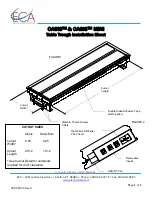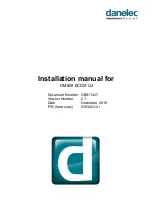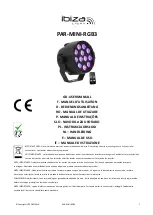
14-9
14.8
Measuring PAWP (only available for the external display)
Pulmonary Artery Wedge Pressure (PAWP) values, used to assess cardiac function, are affected by fluid status, myocardial
contractility, and valve and pulmonary circulation integrity.
Obtain the measurement by introducing a balloon-tipped pulmonary artery flotation catheter into the pulmonary artery.
When the catheter is in one of the smaller pulmonary arteries, the inflated balloon occludes the artery allowing the
monitor to record changes in the intrathoracic pressures that occur throughout the respiration cycle.
The pulmonary wedge pressure is the left ventricular end diastolic pressure when the airway pressure and valve function
are normal. The most accurate PAWP values are obtained at the end of the respiration cycle when the intrathoracic
pressure is fairly constant and the artifact caused by respiration is minimal.
WARNING
PAWP monitoring is not intended for neonatal patients.
NOTE
After entering the PAWP measurement window, the monitor will turn off the PA alarm automatically.
Summary of Contents for BeneView T1
Page 1: ...BeneView T1 Patient Monitor Operator s Manual...
Page 2: ......
Page 8: ...VI FOR YOUR NOTES...
Page 20: ...12 FOR YOUR NOTES...
Page 38: ...2 14 FOR YOUR NOTES...
Page 56: ...4 8 FOR YOUR NOTES...
Page 64: ...5 8 FOR YOUR NOTES...
Page 116: ...8 30 FOR YOUR NOTES...
Page 130: ...11 8 FOR YOUR NOTES...
Page 138: ...12 8 FOR YOUR NOTES...
Page 140: ...13 2 FOR YOUR NOTES...
Page 174: ...16 12 FOR YOUR NOTES...
Page 190: ...18 10 FOR YOUR NOTES...
Page 206: ...21 6 FOR YOUR NOTES...
Page 246: ...A 20 FOR YOUR NOTES...
Page 274: ...D 8 FOR YOUR NOTES...
Page 285: ...G D Declarat tion of C Conform G 1 mity...
Page 286: ...P N 046 005297 00 15 0...
















































